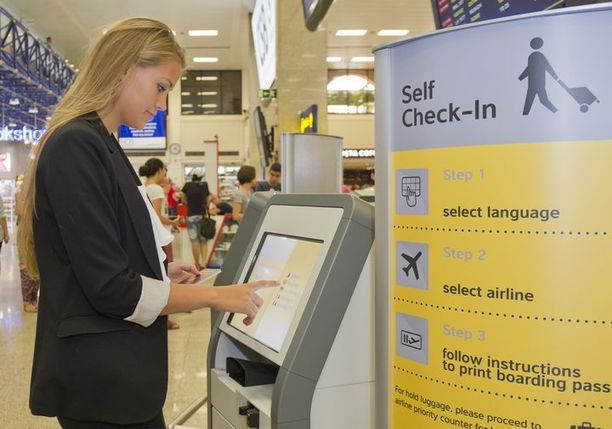
American Airlines Disabled Automatic Boarding Pass Printing At Kiosks—To Save $175,000 On Paper
ViewFromTheWing reports April 2025 — American Airlines has reprogrammed their check-in kiosks so that passengers dropping off bags who have already checked in (online, or using their mobile app) won’t automatically receive printed boarding passes. The kiosk will no longer spit out a paper pass by default. The airline wants passengers to use their own electronic passes, and stop wasting paper.
It’s meant to push more travelers to use digital boarding passes and cut down on printing costs, and is expected to save $175,000 per year as a result of printing 12.5 million fewer boarding passes.
Here are highlights:
- Cost-Saving Measure: American Airlines has decided to disable the automatic printing of boarding passes at kiosks. This move is expected to save the airline approximately $175,000 annually by reducing paper usage.
- Encouraging Digital Passes: The airline aims to promote the use of digital boarding passes among travelers, encouraging them to utilize mobile options instead of printed ones.
- Impact on Passengers: Passengers will now need to take a few extra steps at the kiosks to print their boarding passes, as the system will no longer print passes automatically for every user.
- Environmental Consideration: This decision aligns with broader efforts to reduce paper waste and enhance sustainability within the airline industry.
Key Updates on Boarding Passes
Digital Boarding Passes:
-
Push for Paperless Travel: Airlines are increasingly moving away from paper boarding passes to reduce costs and environmental impact. American Airlines, for instance, has disabled automatic printing of boarding passes at kiosks, encouraging passengers to use digital versions. This change is expected to save $175,000 annually by reducing paper usage2.
-
Global Trends: Saudi Arabian startup Riyadh Air has announced it will not offer paper boarding passes, with CEO Tony Douglas predicting that such passes may disappear entirely within 3-5 years. Other airlines like Emirates and Alaska Airlines have already adopted policies requiring mobile boarding passes in certain locations34.
Technological Innovations:
-
Biometric Boarding Systems: Airlines are exploring biometric technology as the future of travel. This system would allow passengers to use facial recognition or fingerprints as their boarding pass, eliminating the need for physical or mobile passes altogether34.
-
Improved Boarding Efficiency: American Airlines is testing a system that alerts gate agents if a passenger attempts to board before their assigned group. This technology aims to streamline the boarding process and ensure priority benefits are respected1.
Security Concerns:
-
Cybersecurity Risks: Experts warn against sharing images of boarding passes online, as hackers can extract sensitive information from QR codes or barcodes, potentially leading to identity theft or unauthorized changes to travel plans6.
-
Travel Tips: Travelers are advised to screenshot their mobile boarding passes in case of app errors or connectivity issues while traveling5.
Challenges and Considerations:
While digital and biometric systems promise efficiency, some travelers still prefer paper passes due to sentimental value or lack of access to smartphones. Additionally, international travel often requires physical documentation for immigration purposes in certain countries34.
In summary, airlines are rapidly transitioning toward digital and biometric solutions for boarding passes, aiming for greater efficiency and sustainability while addressing security and accessibility concerns.




